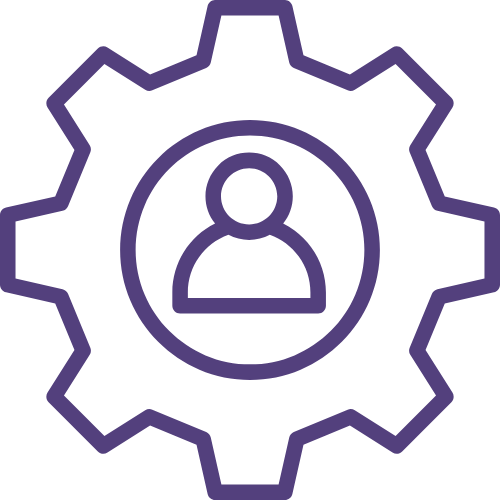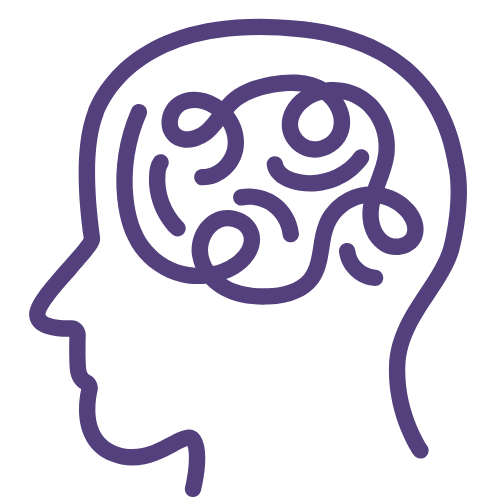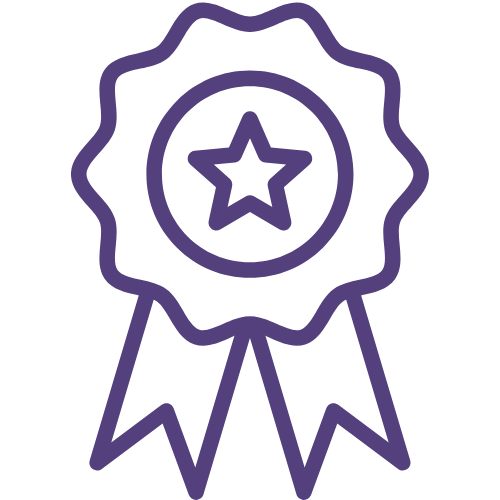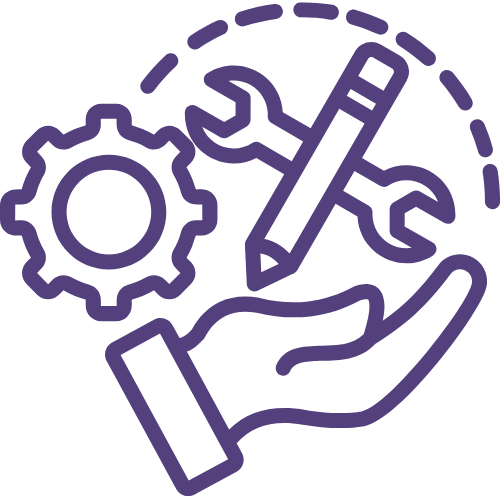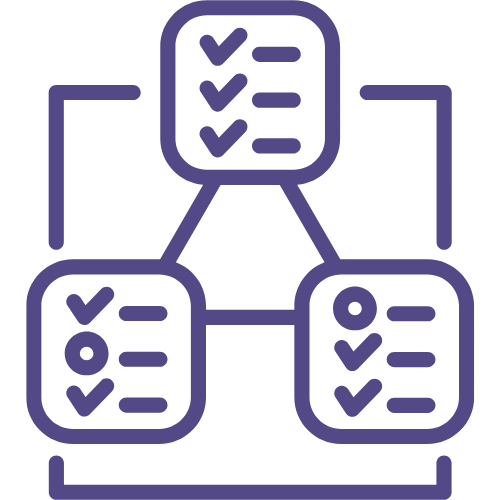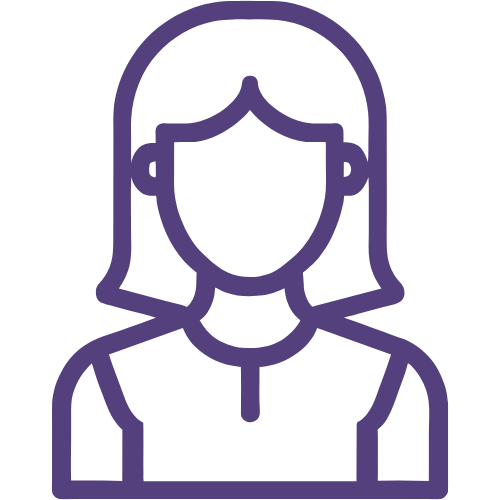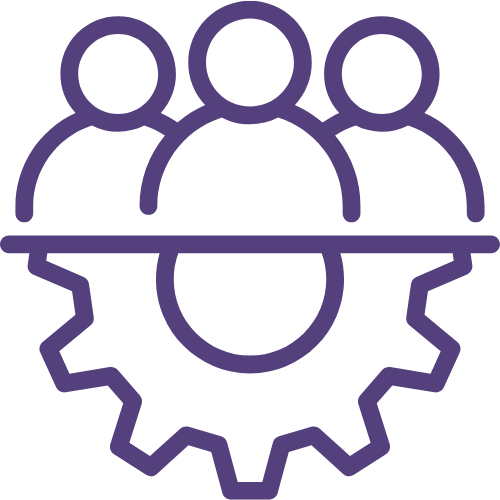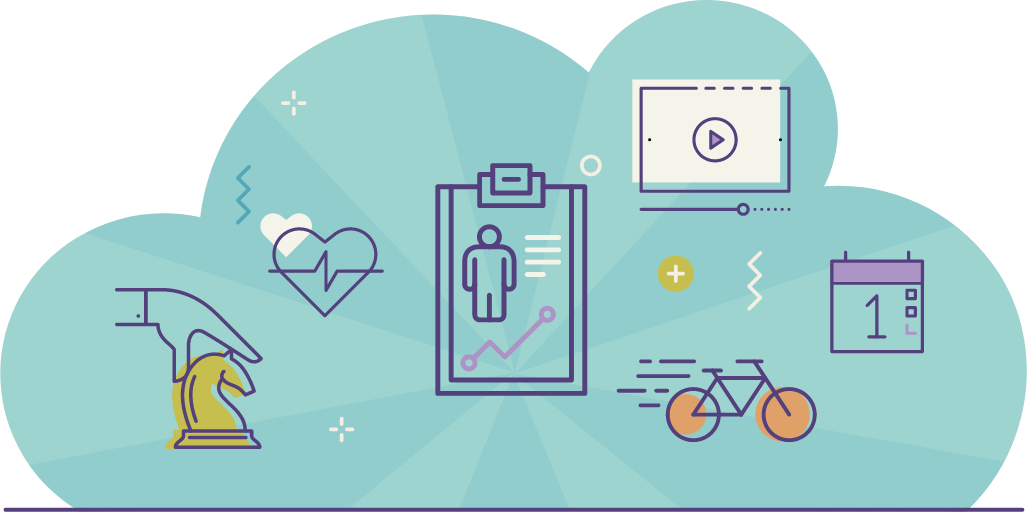 According to a recent survey by the Institute for Employment Studies (IES), and as you’d expect, the lockdown is proving a health challenge. A large number of respondents said they were struggling to sleep due to anxiety. Half reported new neck, shoulder or back pain, thought to be a side effect of the shift to home working and being hunched over a laptop.
According to a recent survey by the Institute for Employment Studies (IES), and as you’d expect, the lockdown is proving a health challenge. A large number of respondents said they were struggling to sleep due to anxiety. Half reported new neck, shoulder or back pain, thought to be a side effect of the shift to home working and being hunched over a laptop.
60% said they were getting less exercise, a third said they were eating less healthily, and 20% said they were drinking more alcohol. So what you can do in the coming weeks to lessen these negative effects in order to be in the best possible shape physically and mentally?
Understanding the pitfalls
The lack of structure that comes with blurred boundaries between personal and work life can affect us on every level: a lot of people feel they can’t stop eating all day long, they miss the banter with colleagues, they struggle to concentrate, with the many distractions at home, including for many, having their kids at home. Here are four key areas to focus on:
- Structure your day
The first step is to be proactive about setting up a new healthy routine at home:
 Going to bed and waking up at regular times (as close as possible to normal times) and keeping to set working hours – the main thing being to establish clear boundaries between work and personal time.
Going to bed and waking up at regular times (as close as possible to normal times) and keeping to set working hours – the main thing being to establish clear boundaries between work and personal time.
With everything feeling topsy turvy, it helps to get clarity – lists are a game-changer and help to de-clutter your mind: make a daily list of what you want to achieve (try to be realistic in your expectations), make a meal plan and shopping list for the week.
When it comes to focus, it helps to clear your workspace every evening. Working in short bursts is very helpful for most people (look up ‘Pomodoro technique’ if you don’t know it).
- Get an eating plan in place
 Snacking at home can be a very slippery slope… the kitchen is all too accessible and with no-one watching, eating can turn into a comforting reflex reaction to a whirlwind of emotions: boredom, worry, anxiety, procrastination.
Snacking at home can be a very slippery slope… the kitchen is all too accessible and with no-one watching, eating can turn into a comforting reflex reaction to a whirlwind of emotions: boredom, worry, anxiety, procrastination.
The first step to control this is to minimise temptations: you might think about crisps and chocolate but if they are not within reach, your brain will move on. The key isn’t to ban all foods you enjoy but stock up on alternatives that are healthier and still give you pleasure: dark chocolate instead of milk chocolate, tasty roasted nuts and seeds or oat cakes and hummus instead of crisps.
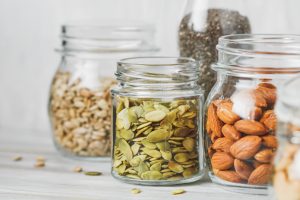 You could even consider this time at home an opportunity to take healthy eating to a new level: more time to cook (less time commuting), more control over your food environment (no colleagues’ birthday cakes, or walking past tempting bakeries on the way to work…). Looking at it this way, this could be the perfect time to set yourself a ten-day no-sugar challenge or try new recipes you never got round to doing before.
You could even consider this time at home an opportunity to take healthy eating to a new level: more time to cook (less time commuting), more control over your food environment (no colleagues’ birthday cakes, or walking past tempting bakeries on the way to work…). Looking at it this way, this could be the perfect time to set yourself a ten-day no-sugar challenge or try new recipes you never got round to doing before.
The strongest motivation imaginable currently is the impact that good nutrition has on immune resistance but also, as emphasized by the Centre for Perioperative Care recently, our ability to recover faster if we get infected with a virus such as Covid-19.
 Each forkful counts when it comes to shoring up the body’s defenses: shun the empty calories of processed foods (such as breakfast cereals, crisps, ready meals) in exchange for whole foods packed with Zinc (seafood, pulses, nuts and seeds, ginger) and Vitamin C (your fresh vegetables and fruit). Go big on mushrooms (especially shiitake) as their high beta-glucan content may benefit the immune system. Add turmeric to your dishes whenever possible, for its considerable anti-inflammatory properties and the same goes for garlic. Also bear in mind the role of gut health in immunity – mineral rich broths, a high-fibre diet and fermented foods such as sauerkraut are all helpful.
Each forkful counts when it comes to shoring up the body’s defenses: shun the empty calories of processed foods (such as breakfast cereals, crisps, ready meals) in exchange for whole foods packed with Zinc (seafood, pulses, nuts and seeds, ginger) and Vitamin C (your fresh vegetables and fruit). Go big on mushrooms (especially shiitake) as their high beta-glucan content may benefit the immune system. Add turmeric to your dishes whenever possible, for its considerable anti-inflammatory properties and the same goes for garlic. Also bear in mind the role of gut health in immunity – mineral rich broths, a high-fibre diet and fermented foods such as sauerkraut are all helpful.
Experiment with herbal teas: Echinacea, ginger and green tea have all been shown to benefit our immune system.
Of course there is no single panacea, but cumulatively, all of these nutrients combine to increase our overall chances of fighting off disease.
- Put in place an exercise routine
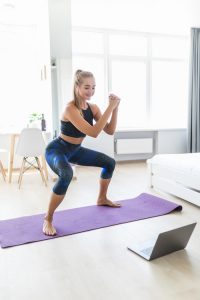 Of course, many exercise options are currently out – no gym, no team sports, limited equipment – but in some ways working from home brings a simplicity which can work in our favour:
Of course, many exercise options are currently out – no gym, no team sports, limited equipment – but in some ways working from home brings a simplicity which can work in our favour:
Make the most of daily time outdoors where possible: fresh air, nature and sunlight add another layer of benefits to your workout, resulting in more ‘feel-good’ chemicals in the body.
Find some good online yoga or pilates classes and practice regularly to de-stress and help with posture and back pain prevention.
Body weight exercise is also a must (again, plenty of options on Youtube). Apart from helping you to feel stronger, building muscle helps boost your metabolism (rendering those work from home snacking indiscretions more forgiving). Research shows that maintaining muscle mass also seems to protect our ability to produce immune cells as we age.
- Cultivate a positive mindset
Finally, keeping a positive mindset is not about feeling good all the time. It’s important to recognise that these times are challenging and we are not superhuman. In other words: give yourself a break!
There’s a good reason this year’s theme for Mental Health Awareness Week has just been changed to kindness in the midst of this pandemic. This means kindness to those around us but it also means kindness to ourselves. It means making time to connect, even as we social distance, picking up the phone to speak to a colleague or a friend, and asking for support if we need it.
Sources
S Bevan, IES Working at Home Wellbeing Survey, Interim Findings, Institute for Employment Studies (IES), Apr 2020
JJ Volman, Effects of mushroom-derived beta-glucan-rich polysaccharide extracts on nitric oxide production by bone marrow-derived macrophages and nuclear factor-kappaB transactivation in Caco-2 reporter cells: can effects be explained by structure?, Mol Nutr Food Res. 2010 Feb;54(2):268-76. doi: 10.1002/mnfr.200900009
GC Jagetia, “Spicing up” of the immune system by curcumin., J Clin Immunol. 2007 Jan;27(1):19-35. Epub
Arreola R, Immunomodulation and Anti-Inflammatory Effects of Garlic Compounds, J Immunol Res. 2015; 2015: 401630. Published online 2015 Apr 19. doi: 10.1155/2015/401630
Our top lockdown webinar recommendations:
- The Super Work from Home Nutrition & Exercise Plan
- Our 20minute mindfulness, meditation and visualisation sessions
- The Stress-busting Action Plan
- How to get better sleep
Get in touch for details.


